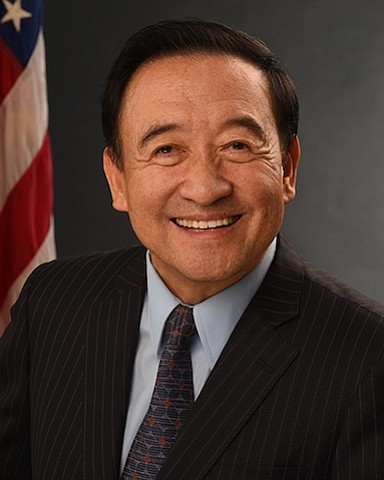HHS Working with Edingburg Community to Fight New Public Health Crises
Style Magazine Newswire | 11/14/2017, 9:41 a.m.
After spending decades as an orthopedic surgeon serving communities in Southern California, honored to serve my nation and communities throughout the country as the deputy assistant secretary for minority health for the U.S. Department of Health and Human Services and director of the Office of Minority Health (OMH). The office has been in existence for more than 30 years and was as a result of the federal government’s first comprehensive examination of minority health, the 1985 landmark Report of the Secretary’s Task Force on Black and Minority Health, also known as the Heckler Report.
The Heckler report focused on six conditions where there was a significant disparity among minorities, including cancer, infant mortality and heart disease and stroke. And while health disparities remain, since the mid-1980s, there has also been significant progress in these areas. While we continue the work to reduce health disparities, we are not immune from new public health challenges that will require a national commitment at the federal and local levels.
In my brief time at OMH, our office has been part of the HHS recovery efforts for Hurricanes Harvey, Irma and Maria to help millions who have lost so much. We have also focused our attention on some of the nation’s urgent public health challenges, including childhood obesity, the opioid epidemic and serious mental illness. OMH recently announced more than $5.2 million in new cooperative agreement awards through our Empowered Communities for a Healthier Nation Initiative. This initiative strives to help minority and disadvantaged populations in communities disproportionately affected by the opioid epidemic, childhood obesity and serious mental illness. The awards have been distributed to 15 organizations throughout the country to help communities develop solutions to these public health challenges.
In Edinburg, OMH awarded $344,689 to the University of Texas Rio Grande Valley South Texas Early Prevention Study Pre-K (STEPS Pre-K) Project. This project will implement and evaluate the South Texas Early Prevention Study to control and prevent obesity among Hispanic children of 4 years of age. It will also address social determinants of health that impact access to and utilization of healthcare and social services. According to CDC, obesity affects about 12.7 million children in the U.S. (2011 – 2014) and Hispanic/ Latino children experience some of the highest rates of obesity.
We developed the Empowered Communities Initiatives to help foster community- based partnerships like the one to the University of Texas Rio Grande Valley South Texas Early Prevention Study Pre-K (STEPS Pre-K) Project is building in Edinburg, to help address childhood obesity among Hispanic children.
We understand the enormity of the challenges we face when it comes to childhood obesity, the opioid epidemic and serious mental illness, but I am confident about the Empowered Communities Initiative because it relies on solutions developed at the local level by partners and stakeholders who are committed to improving the health of racial and ethnic minorities and other disadvantaged populations. I am confident, too, that by working together, there is no challenge we cannot meet.
Dr. Matthew Lin is the newly appointed Deputy Assistant Secretary for Minority Health at the U.S. Department of Health and Human Services and Director of the HHS Office of Minority Health.




